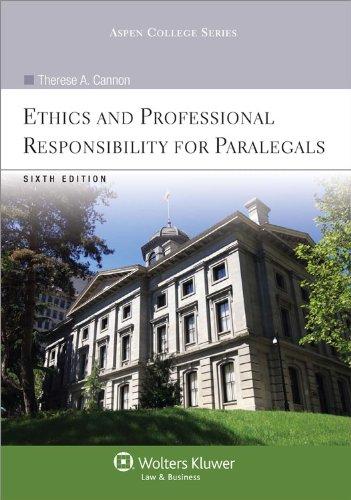Beginning in approximately 1979, Giancola was employed in Chicago by attorney Samuel Poznanovich as a part-time secretary
Question:
Beginning in approximately 1979, Giancola was employed in Chicago by attorney Samuel Poznanovich as a part-time secretary in his law office.
Eventually, she became his full-time secretary. Giancola received a paralegal certificate from Roosevelt University in 1980, and took an H & R Block tax course in 1970. Poznanovich employed one other secretary in addition to Giancola.
In 1981, Richard and his wife, Lila, came to Poznanovich’s office for income tax services. The Divines did not have any children and both were retired. Giancola estimated that they were in their ‘‘early seventies’’
in 1981. Giancola interviewed the Divines, took tax information from them such as W-2 forms and copies of their previous tax returns, and introduced them to Poznanovich. After this initial meeting, Poznanovich prepared the Divines’ tax returns every year until 1986. Each year, Giancola would interview the Divines and gather their tax information. She never prepared their taxes, but simply gathered information for Poznanovich’s use. In 1985, Poznanovich also represented Richard in a personal injury case. Giancola was not involved in that case. Additionally, Richard called Poznanovich occasionally for legal advice on other matters. Before 1986, Giancola and Poznanovich sawthe Divines only at the lawoffice, although, according to Poznanovich, the relationship became ‘‘more and more friendly’’ each year.
In December 1986, Lila died. Richard called Giancola at the office to tell her about Lila’s death. Giancola stated that Richard had ‘‘depended on Lila for just about everything’’ and was very lonely without Lila. Also, he was ‘‘unable to do for himself.’’ Giancola went to visit Richard in his apartment on Coles Avenue ‘‘within a day or two’’ of Lila’s death. Richard was afraid to leave the apartment alone and could not walk long distances because ‘‘his legs were bad.’’ Richard’s relatives and Poznanovich also testified that Richard had physical problems with his legs. Giancola stated that for ‘‘the most part,’’ Richard was confined to his apartment. After Giancola’s first visit, Richard frequently called her, and she visited his apartment once or twice a week. Richard asked her to assist him in getting his groceries and other necessities. Richard gave Giancola money for the groceries and supplies. She testified that he did not give her a ‘‘fee’’ for her services, but admitted that sometimes he gave her ‘‘something for [her]self.’’ He did his own cooking while living in the Coles Avenue apartment.
Giancola believed that the neighborhood around Coles Avenue was too dangerous for Richard, and she did not like going there to visit him.
She suggested that he move to a safer area; she also mentioned to Poznanovich that Richard’s neighborhood was unsafe. Poznanovich’s office is located in a building he and his sister own. There are four residential apartments in that building which are rented by Poznanovich and his sister. Giancola occasionally takes the rent checks from tenants for Poznanovich.
When an apartment became vacant in Poznanovich’s building, Giancola told Richard it ‘‘would be easier’’ if he moved into that apartment.
She did not know that Richard’s relatives wanted him to move to Michigan City, Indiana. . . .
In addition to getting his supplies and cooking his meals, Giancola cashed checks for Richard and made bank deposits for him. She wrote out the checks for all his bills. She.....
Questions about the Case 1. What was the paralegal’s relationship with the client, and how did it evolve over time? Was it professional or personal?
2. What evidence might show that the paralegal took advantage of the client? Discuss the adequacy of this evidence.
3. Did the petitioners sue the lawyer? Why or why not? On what grounds did they sue the paralegal?
4. Under this case, can a paralegal be held liable for the actions of his or her employing lawyer? Could the lawyer be held liable for the actions of the paralegal?
5. Does a paralegal have a fiduciary duty directly to a client in Illinois?
How would you state this principle?
6. Review the rules in Chapter 5 about accepting gifts from clients and determine if either the lawyer or the paralegal in this case violated those rules. What should they have done to protect against a lawsuit like this one?
Step by Step Answer:

Ethics And Professional Responsibility For Paralegals
ISBN: 272860
6th Edition
Authors: Therese A. Cannon





